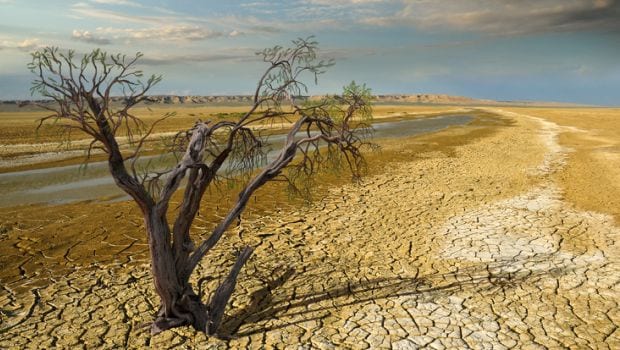
Efforts to build a new global deal to tackle climate change were for many years criticised for moving at a glacial pace. But this week climate negotiators meeting in Morocco find themselves facing an entirely new problem: a deal that, astonishingly, has come into effect more than three years ahead of schedule.
The Paris Agreement on climate change, designed to start in 2020, entered into force on Friday, a month after reaching key ratification thresholds. On Sunday, the United Nations said 100 parties – 99 countries and the European Union – had formally joined the accord.
Its swift entry into force has been a cause for celebration – and some puzzlement.
“We’re now in an interesting conundrum we never thought we’d find ourselves in: After pushing for decisive and speedy action, we got it,” said Paula Caballero, global director of the climate programme at the Washington-based World Resources Institute (WRI).
The immediate challenge for negotiators is that, by law, countries that have ratified the deal must start agreeing the rules to implement it at the next U.N. climate conference.
But that meeting starts on Monday in Marrakesh. That has left officials a very short time to iron out a host of technical issues – and only about half the parties that crafted the Paris deal eligible to participate in the early decision-making.
“Because we’ve jump-started the (deal), we now have to find a way for negotiators to discuss the rules while still finding ways for other countries to come in and join,” said Liz Gallagher, a climate diplomacy expert at London-based E3G, a sustainable-development think tank.
But that is “a good problem to have”, she said. “It’s the first time we really feel the urgency in the negotiations is reflected.”
TRUMP EFFECT
The rapid approval of the agreement – one of the fastest in the history of international deal-making – has happened in large part because a growing number of countries feel the urgency of taking swift action to deal with climate change and its worsening impacts, while big climate polluters such as China and the United States have jointly stepped up to push the deal.
But many nations also have an anxious eye on this week’s U.S. elections, where Republican presidential candidate Donald Trump has promised to pull his country out of the climate agreement if elected, analysts said.
That threat, in recent months, has spurred a rush to ratify the agreement and ensure it takes force before the U.S. vote.
Under the rules of the Paris Agreement, once it has come into effect, “legally a country cannot withdraw before the next five years are over”, said Sven Harmeling, international climate change policy coordinator for the aid agency CARE.
The quick ratification of the global climate deal, however, will likely require a bit of procedural fancy footwork at the Nov. 7-18 U.N. climate talks.
Negotiators, for instance, likely will open the first meeting of the governing body of the Paris Agreement and then suspend it very soon after until 2017, or more likely 2018, said Ulriikka Aarnio, international policy coordinator for Climate Action Network Europe.
Talks can then continue but no decisions will need to be made until the suspension is lifted, she said. As only countries that have ratified the agreement can vote on the rules, the suspension could spur countries that have not yet passed the deal to do so quickly, she and others said.
“We need to find a way to ensure that the inclusiveness that has been at the core of the agreement is maintained, so that all countries that want to ratify and haven’t been able to do so are able to fully participate in the rule-making process,” said WRI’s Caballero.
TEMPERATURE THREAT
Negotiators in Morocco will be trying to push ahead on a few key points, however, looking at immediate actions that could be taken to cut emissions and how emissions reductions could be ratcheted up from existing promises after a 2018 progress review.
They also will dig into how the world will make a promised shift to using virtually no fossil fuels by the second half of the century and how to hold global temperature rise to an ambitious target of “well below” 2 degrees Celsius.
“It’s now starting to sink in,” Aarnio said. “It means really, really drastic mitigation in all sectors, much faster than anything we’ve seen before.
That effort has had a boost in recent weeks with the passage of an accord to begin limiting the use of hydro fluorocarbons – refrigerants that are major contributors to climate change – and a separate deal to cap increases in aviation emissions by 2020.
Critics, however, say both deals and the national commitments so far made under the Paris Agreement are less ambitious than what is needed.
The U.N. environment agency, UNEP, says those national pledges put the world on track for an average temperature hike of 2.9 to 3.4 degrees Celsius above pre-industrial times.
Record temperatures and worsening weather extremes are already putting many people at risk even with the warming of just over 1 degree Celsius registered so far, development experts say.
From drought-related food insecurity in Malawi and Madagascar to worsening storms in Vietnam and the Philippines, “what we are seeing this year is more and more difficult for people to prepare for and cope with”, said CARE’s Harmeling.
[“source-ndtv”]










